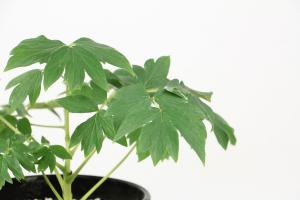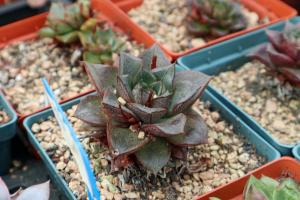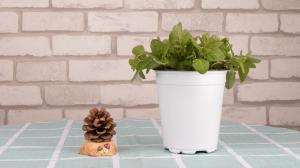Should You Use Water Soluble Fertilizer When Planting Bare Roots?
When planting bare roots, it is essential to provide the right amount of nutrients to ensure the plant thrives. One way to provide these nutrients is through fertilizer. However, the question arises as to whether one should use water soluble fertilizer when planting bare roots. The answer is not straightforward and depends on various factors.
What Are Water Soluble Fertilizers?
Water soluble fertilizers are fertilizers that can dissolve in water and easily absorb into the plant's root system. These fertilizers typically come in a powder or granular form and dissolve in water, making it easy to apply using a watering can or spray bottle. Water-soluble fertilizers contain high levels of nitrogen, phosphorus, and potassium, which are critical to a plant's growth and development.
Benefits of Water Soluble Fertilizers
Water soluble fertilizers offer several advantages when growing plants, including the following:
Plants can quickly and easily absorb nutrients from the soil, ensuring they receive the nutrients they need to grow healthily.
Water soluble fertilizers can be applied in small doses but more frequently, which aids in ensuring the plant receives a consistent supply of nutrients.
These fertilizers can improve soil fertility and structure, leading to healthier plants.
Using Water Soluble Fertilizer for Bare Roots
When planting bare roots, using water soluble fertilizer requires careful consideration. Bare roots are plants without soil around their roots, which makes them more susceptible to stress and shock. When applying water soluble fertilizer, care should be taken to ensure that the fertilizer is diluted before application as high concentrations of fertilizer can damage the plant's roots.
Additionally, using water soluble fertilizer requires frequent application. When planting bare roots, it is critical to avoid over-fertilizing the plant, as this can lead to excessive growth or damage to the plant.
Considerations When Using Water Soluble Fertilizer
When considering using water soluble fertilizer when planting bare roots, the following factors should be considered:
The type of plant being grown
The soil structure and quality
The location of the plant
The environment the plant will be exposed to, including temperature, light, and humidity
If these factors are closely analyzed, one can determine whether water soluble fertilizer is the best choice for planting bare roots.
Conclusion
While water-soluble fertilizers offer several benefits, when planting bare roots, care should be taken to use the fertilizer correctly. Understanding the plant's needs and the environmental factors will aid in selecting the best fertilizer for planting bare roots. With proper care and attention, using water-soluble fertilizer when planting bare roots can be an effective way to ensure healthy plant growth and development.

 how many times do yo...
how many times do yo... how many planted tre...
how many planted tre... how many pine trees ...
how many pine trees ... how many pecan trees...
how many pecan trees... how many plants comp...
how many plants comp... how many plants can ...
how many plants can ... how many plants and ...
how many plants and ... how many pepper plan...
how many pepper plan...





























